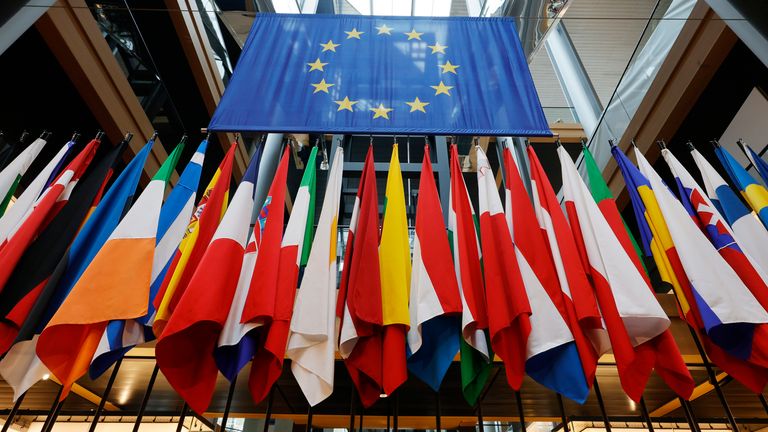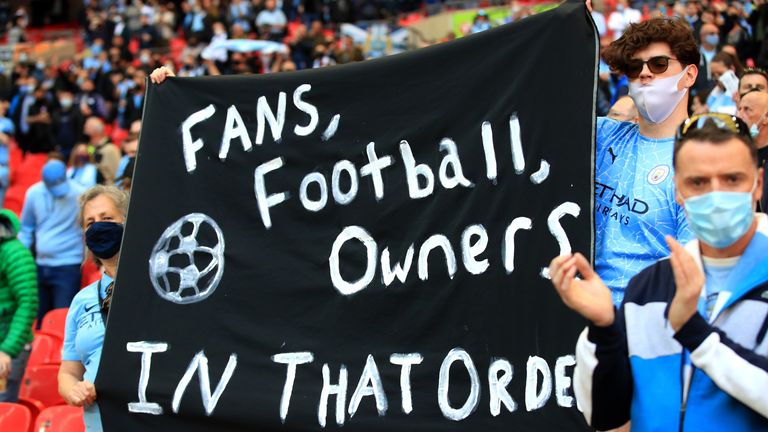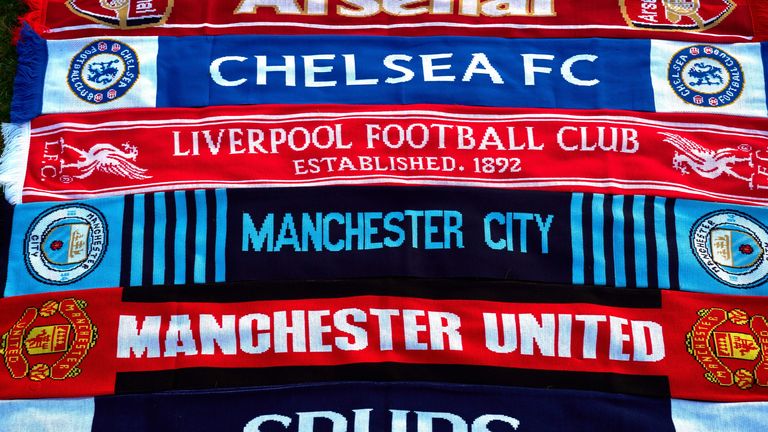European Super League: Over half of EU countries formally oppose botched project
The EU countries want to protect the "European Sports Model" which allows football to have exemptions from competition laws, defends grassroots level sport and sporting integrity; the European Court of Justice (ECJ) is also due to hold a public hearing in 2022
Thursday 21 October 2021 08:51, UK
More than half of European Union member states have formally opposed the Super League project at the European Court of Justice.
Of the 27 EU members, 16 filed written submissions against the league to the court in Luxembourg on Monday.
The court has been asked by a judge in Madrid to examine if UEFA and FIFA have a monopoly control of world football.
UEFA said the 16 nations include Spain and Italy - home countries of Real Madrid, Barcelona and Juventus, the teams leading the 12-club Super League company's legal fight. Germany is also expected to oppose the Super League.
- Barcelona, Real Madrid, Juventus to carry on Super League plans
- Hits and misses: Man Utd paper over cracks?
- Lukaku injury mars Chelsea demolition of Malmo
The European court is expected to hold a public hearing in the first half of next year but a ruling could take several more months.
EU member states want to protect the "European Sports Model," which gives football its exemptions from competition laws.
The model defends the role elite and grassroots sports play in European life when they are part of the same pyramid of competitions and funding is open to everyone through promotion and relegation.
The Super League project, which was announced in April but quickly collapsed, was to break away from the Champions League and run its own competition.
Fifteen invited clubs from Europe's five wealthiest football markets would have had protected status while the other five places would have been open to other sides.
The 12 original Super League members filed legal suits at the same time in a Madrid commercial court against football's governing bodies.
The clubs object to the three-fold role of UEFA and FIFA as regulators of football, commercial operators with their own competitions, and gatekeepers with authority to limit rivals.
Although the Super League project ended within 48 hours - after the six English clubs withdrew amid a fierce backlash from fans and politicians - the legal contest continues in their name.
The judge in Madrid asked the European court in Luxembourg to examine the governing bodies' authority over organising competitions and their right to sanction challengers to that authority.
In May, UEFA announced settlement agreements with the nine Super League members who withdrew. That included paying millions of pounds in fines and forfeiting future prize money, plus larger financial penalties for taking part in any similar project.
UEFA annulled those settlements last month, pending the European case, but said disciplinary action could be revived after the judgment.






